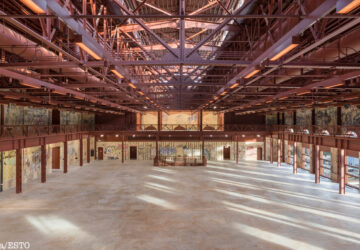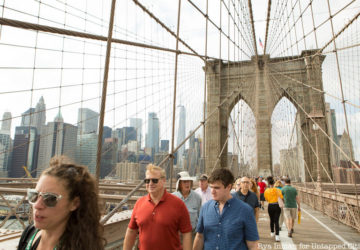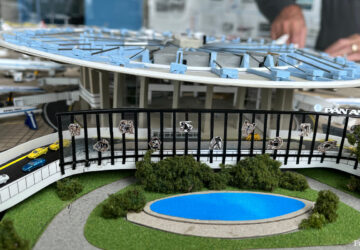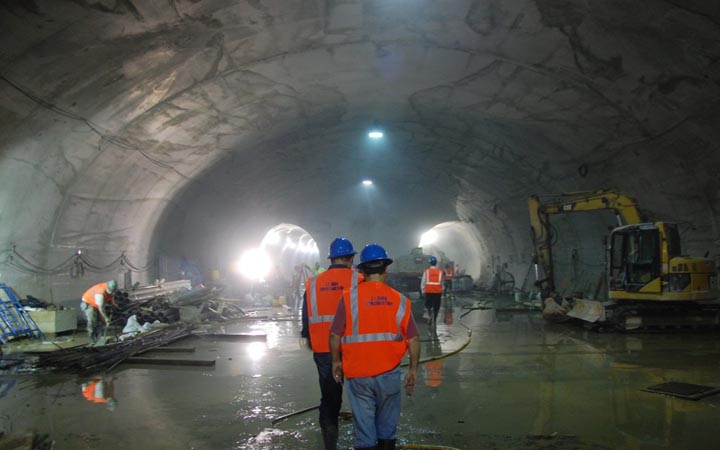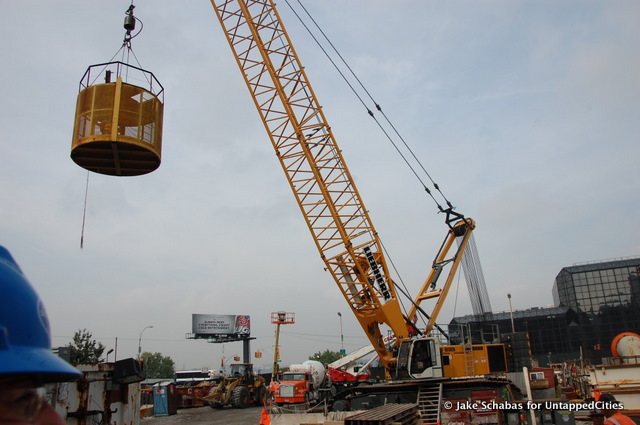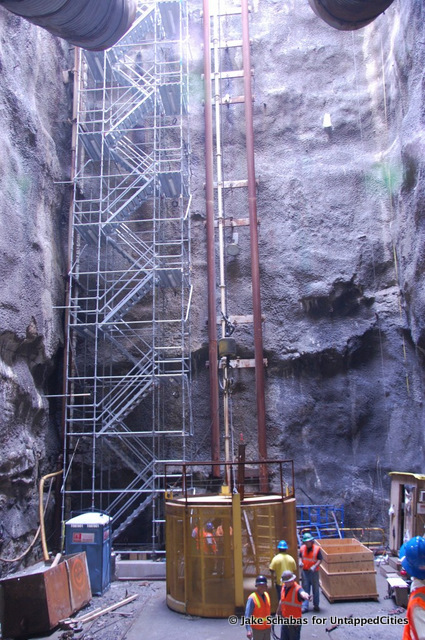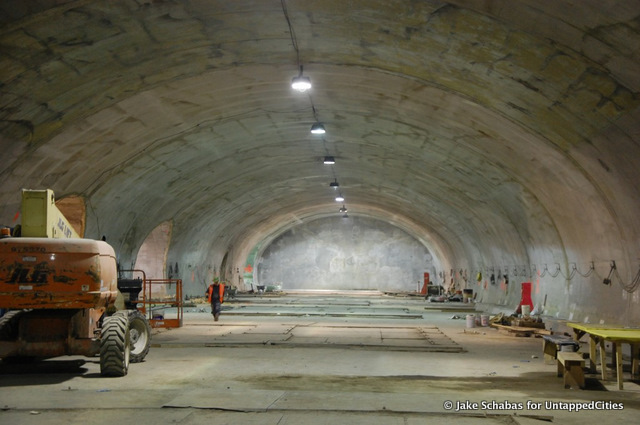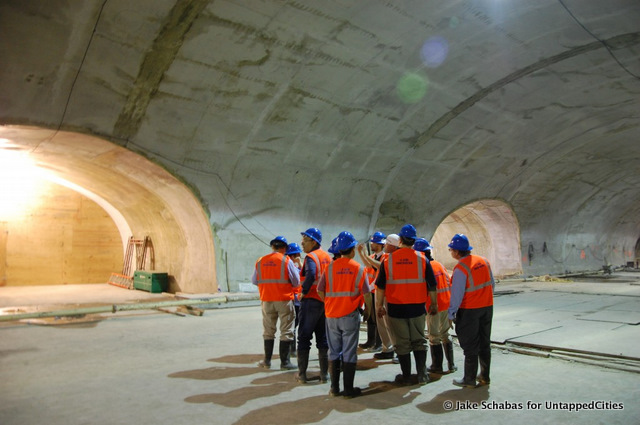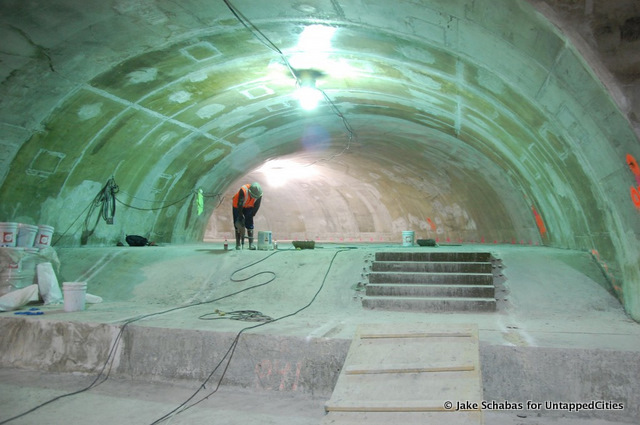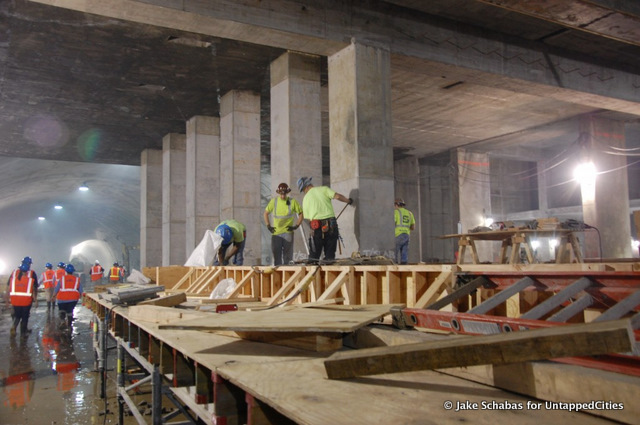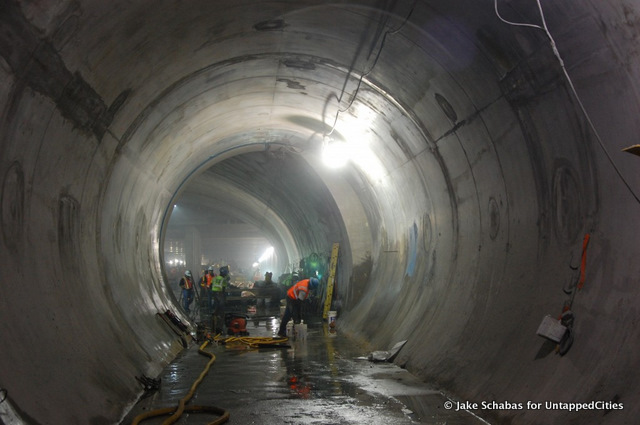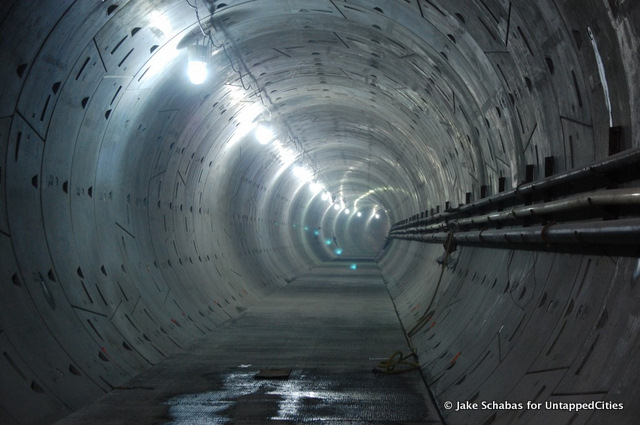[Update: Check out photographs from the new station, opened on September 13th, 2015]
This is the second feature in a series on the MTA’s three largest megaprojects: the Second Avenue Subway, #7 Line Extension and East Side Access construction projects.
______________________________________________________________________________________________________
The 7 Line extension is notable for many things. For one, the project is the foundation for one of the largest redevelopment projects in New York City’s history, known as the Hudson Yards Redevelopment. Secondly, the MTA isn’t paying a cent for its construction: all funds are coming through the City via the future property tax revenues that the Hudson Yards Redevelopment projects are expected to generate, a financing method known as tax increment financing (TIF). Thirdly, since New Jersey Governor Christie canceled the Access to the Region’s Core project (ARC), the #7 Line extension might one day evolve into the first underwater trans-Hudson connection between Manhattan and New Jersey to be built since the opening of the Lincoln Tunnel in 1937.
I was taken on a tour of this quickly progressing project, which is much closer to completion than either the Second Ave Subway or East Side Access projects. To see the construction, we were lowered about 100 feet down the main access shaft in a metal cage to the front of the new station being built at 34th Street and 11th Ave.
The new station will be unlike any other in the entire system due to its size and style. For starters, the new station will be far deeper than most stations since the extension needs to avoid the Lincoln Tunnel which passes over a portion of the line. The 34th Street stop will also have a concourse level above the platform with triple width staircases accessing extra-wide station platforms below. With all the development planned for the Hudson Yards project, including a 100-story skyscraper directly east of the station, MTA estimates the new #7 line terminus will be the busiest station in the entire system by 2025.
The 1.5 mile tunnel from Times Square connects to the almost completed station platforms directly below the concourse. To bore the tunnel, a different method was used than the cast-in-place technique used on the Second Ave Subway where construction workers follow the tunnel boring machine (TBM) installing metal ribs. There the engineers think the rock needs reinforcing before sealing it with a waterproof PVC membrane and concrete coating. The #7 Line extension is using a pre-cast concrete and rubber gasket method where interlocking pre-cast concrete pieces are fitted together like a jig-saw puzzle and tightened into place to create waterproof ‘pipe’ inside the rock tunnel.
Originally, a second station had been planned further up the line at 10th Ave and 41st Street but it was canceled due to a lack of funds. Other shortcomings such as the fact that the 34th Street station will only have two entrance/exit points, both of which emerge significantly east of 11th Ave rather than near to the Javits Convention Center or Hudson Ferries also have to do with funding. While convenient for the developers building east of 11th, this is a major blow for the many new residents who will one day live further north in West Midtown, for commuters who use the ferry service, and for anyone ever visiting the Javits Convention Center.
With construction almost eleven months ahead of schedule, there’s the possibility that the extension will begin fare service by the end of 2013, just in time for Mayor Bloomberg to cut the ribbon before his term, and supposedly his time as Mayor ends. The price tag for the entire project is just over $2 billion.
[Update: Check out photographs from the new station, opened on September 13th, 2015]
Check out the previous article in this series inside the 2nd Ave Subway construction. Next up: the East Side Access project.

